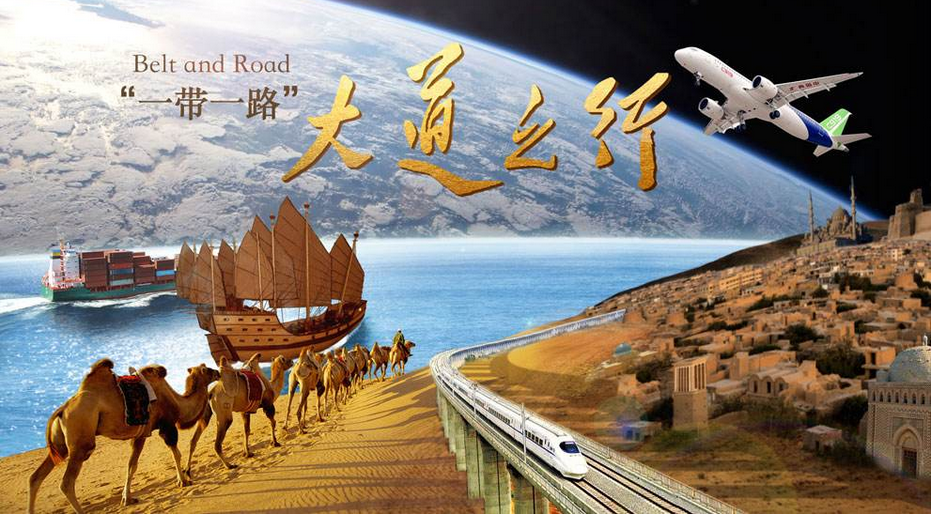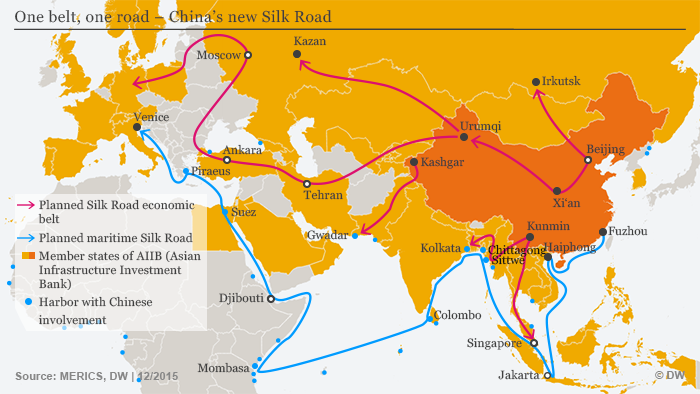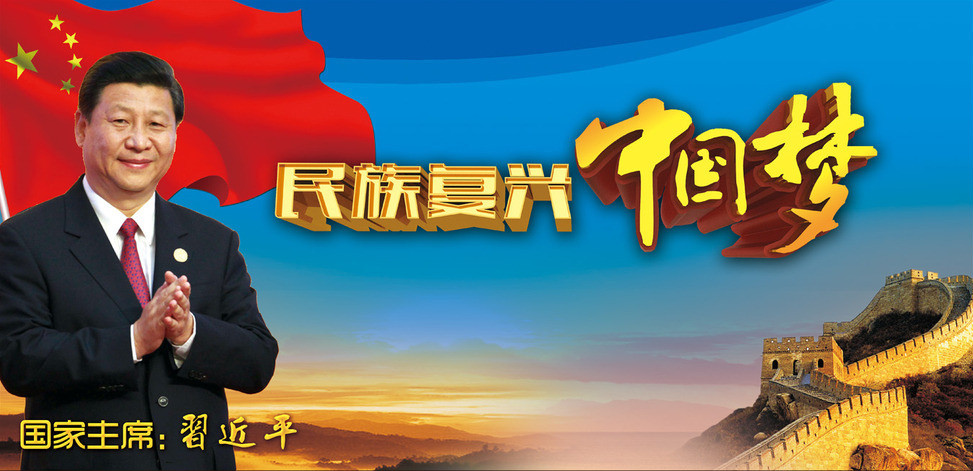| chinas_asia_dream.pdf |
Miller provides several reasons why Xi Jinping wants to build these commercial corridors:
- The slowing domestic economy: the one belt one road [read: one region of influence many roads] project is designed to enlarge the market for China’s global champions
- Technological standards: closer connections with these countries will give China the possibility to lobby for the implementation of its domestic standards in areas like telecom, railway, pipelines, etc; thus effectively supporting objective #1, i.e. enlarging markets for commercial giants like Huawei, ZTE, COMAC, Sinopec, etc.
- Manufacturing overcapacity: China imported entire factories from Germany and Taiwan in 80 and 90s, but now wants to dismantle its own manufacturing overcapacity and set it up in other countries, where pollution most likely does not affect Chinese citizens. Although this reason might be of minor relevance, it is driven by objective #1 = speeding up the slowing domestic economy and securing domestic power by moving toxic industry abroad.
- Threat of Islamic terrorism: Miller argues that poverty turns people towards religion and sees therein yet another reason for Beijing to support the economic rise of neighboring countries.
- Securing natural resources: this factor does not seem so plausible, because China secured its natural resources already in Australia, Africa, Russia and South America, but a strong partnership with e.g. Kazakhstan will prep up its stock significantly. Kazakhstan has the second largest uranium, chromium, lead, and zinc reserves, the third largest manganese reserves, the fifth largest copper reserves, and ranks in the top ten for coal, iron, and gold. It is also an exporter of diamonds. Perhaps most significant for economic development, Kazakhstan also currently has the 11th largest proven reserves of both petroleum and natural gas.
The NYT writes that Xi Jinping positioned China at center of new economic order on May 14th when he opened the Belt and Road Forum in Beijing. Miller mentioned in his book presentation that Beijing was covered with billboard posters prior to the forum and joked that the abbreviation of the forum, BARF, is a synonym for regurgitate in American English. That’s probably how many representatives of Western nations – a strong overlap with NATO member states to be assumed – felt, because most of them did not show up for this grandly executed event.
Chairman Xi gives the one belt one road project absolute priority. It seems to be his flagship project, the project with which he wants to write history; despite the connotations we might have with the Silk Road, it is in essence more about China re-building its network of vassal states, similar to what the US did after WWII under the NATO umbrella and with its semi-colonial dependencies in Central and South America; or the USSR with the Eastern Bloc. The international implications are already visible, because the world shows after four decades cold war from the late 1940s to the early 90s a new fault line between democratic and authoritarian political systems and their spheres of influence. This time not only the centers of power have changed, but the also the frame conditions, in particular the technologies applied by governments and within societies at large. China’s technocratic system and its advances in cyberleninism seem to have a cutting edge over outdated democratic opinion finding.
Historian Harari wrote recently that political scientists increasingly interpret human political structures as data-processing systems. Like capitalism and communism, so democracies and dictatorships are in essence competing mechanisms for gathering and analysing information. Dictatorships use centralised processing methods, whereas democracies prefer distributed processing. In the last decades democracy gained the upper hand because under the unique conditions of the late twentieth century, distributed processing worked better … as data-processing conditions change in the twenty-first century, democracy might decline and even disappear. As both the volume and speed of data increase, venerable institutions like elections, parties and parliaments might become obsolete – not because they are unethical, but because they don’t process data efficiently enough. These institutions evolved in an era when politics moved faster than technology.
Harari continues, that doesn’t mean we will go back to twentieth-century-style dictatorships. Authoritarian regimes seem to be equally overwhelmed by the pace of technological development and the speed and volume of the data flow. In the twentieth century, dictators had grand visions for the future. Communists and fascists alike sought to completely destroy the old world and build a new world in its place. Whatever you think about Lenin, Hitler or Mao, you cannot accuse them of lacking vision. Today it seems that leaders have a chance to pursue even grander visions. While communists and Nazis tried to create a new society and a new human with the help of steam engines and typewriters, today’s prophets could rely on biotechnology and super-computers.
The big question is therefore what vision president Xi has for China’s citizens and humanity at large. Are gargantuan projects like the One Belt One Road Initiative motivated by power or purpose? If power is the Middle Kingdom’s paramount leader’s paramount motivation, then the fears of neighboring countries which Miller describes in his book are justified. In Kirgizstan people have a perception that the Chinese are gobbling up the country. Sri Lanka thinks that Chinese will import even more corruption than the island nation already suffers from. Pakistani are outspoken belligerent and Beijing had to dispatch 15000 Chinese security staff to protect Chinese workers at infrastructure project sites. Chinese expansionism in the South Chinese sea and beyond nurtures India’s worries that a string of pearl harbors suffocates its own commercial and defense system. Laos experiences in its Golden Triangle SEZ, which is owned by a Heilongjiang businessman commercial annexation: clocks are set according to Beijing Time and China Mobile serves as main carrier. All Pacific nations are doubtful about the consequences of president Xi pressing ahead with APEC since president Trump declared TTP dead; regional trade organizations like ASEAN might suffer a gradual lethal blow from APEC, because they would be made redundant.
If chairman Xi’s vision is driven by power, then the world is likely to experience a scenario which is likely to what William Adams and Damien Ma tried to describe in their macroeconomic analysis In Line Behind a Billion People. Scarcity will define China’s ascent during the next decade, in particular for those who have to queue; and that is ROW: the rest of the world. Foreign participants of the BARF event on May 14 would then be political opportunists who want to secure themselves a place in second position, still behind China, but at least before others in the new global pecking order. If chairman Xi’s vision is driven by purpose, what I hope very much, we could indeed see a massive increase in living standards in regions which have till now not participated in the benefits of the industrial revolution and globalization. China’s initiative could henceforth facilitate more economic and social justice. The future will show which vision was at the heart of China’s helmsman, but there is reason to be suspicious, because apart from China’s Asia Dream, which is mostly communicated to a foreign audience, there is a second much more important domestic dream being broadcasted since years to the Chinese citizens: the China Dream | 中国梦. It is shown to the population on billboards all over the country and speaks with a wall in center position a well known symbolic language of exclusion which is the exact opposite of what president Xi pledges in the video of the state owned news agency Xinhua.
- https://www.ft.com/reports/new-trade-routes-silk-road-corridor
- http://www.ft.com/indepth/silk-road-redux?ft_site=falcon&desktop=true
- http://www.podcasts.com/ncuscr_china_podcast_series/episode/the-silk-road-in-history-and-today-author-james-millward
- http://sinica.supchina.com/jim-milward-and-the-silk-road
- http://popupchinese.com/lessons/sinica/in-line-behind-a-billion-people
- http://blog.merics.org/en/blog-post/2017/05/11/belt-and-road-forum-chinas-global-leadership-experiment/
- http://www.merics.org/de/tags/belt-and-road/



 RSS Feed
RSS Feed